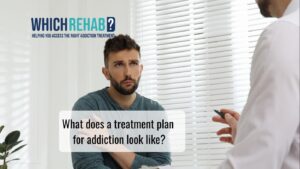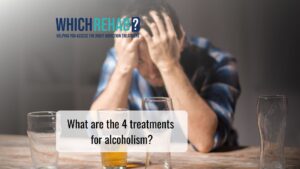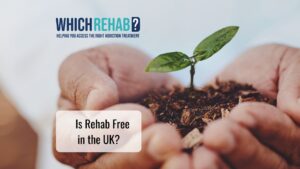Cannabis Addiction
Which Rehab specialises in finding you the right treatment for your cannabis addiction.
If you or a loved one are struggling with Cannabis use and finding it difficult to stop, we can help!
What Is Cannabis?
Cannabis, also commonly referred to as marijuana, grass, weed or pot is a drug that comes in various forms and strengths, all deriving from the cannabis plant, and is the most misused illegal substance in the UK.
Although some people argue that cannabis is a natural plant with therapeutic benefits as well as promoting feelings of relaxation and tranquillity, cannabis consumption can result in the development of an addiction and have severe health implications. These include a profound effect on your central nervous system with research also suggesting that cannabis abuse can cause memory problems, cognitive impairment, paranoia and is linked to a range of mental health conditions.
Pregabalin dependence occurs when you abuse the drug despite any negative consequences that might occur as a result. Addiction is characterised as a compulsive psychological need for, and use of, a habit-forming substance. While addiction itself is psychological, it and can also lead to physical dependence. Physical dependence occurs when your body becomes so reliant on the presence of the drug in its system, that it requires Pregabalin to function normally. Although Pregabalin is a prescription drug, it still carries the risk of addiction, even when taking it as recommended.
It is important to note, however, that stopping Pregabalin suddenly could result in some unpleasant withdrawal symptoms. When taking any kind of medication, whether it has been prescribed to you or not, you should always seek medical advice before complete cessation.
ARE YOU SUFFERING FROM CANNABIS ADDICTION?
Our team of rehab and addiction specialists are on hand to talk to you day or night. Let us help you take back control.
Is Cannabis Addictive?
Yes!
Cannabis is a very addictive substance and can have powerful psychological effects on a user’s brain due to chemical reactions. Changes in behaviour including paranoia, mood swings, depression, anxiety, and irritability have all been observed in users under the influence of the drug.
Heavy cannabis users often get cravings and find it hard to be without the drug, even when they know it’s causing them physical, mental or social problems.
When heavy users do try to stop they can:
- feel moody and irritable
- feel sick
- find it hard to sleep
- find it hard to eat
- experience sweating and shaking
- get diarrhoea
Symptoms Of Cannabis Addiction
If cannabis is ingested, the body produces increased amounts of the hormone that controls our happiness levels, known as dopamine. This results in a user of cannabis experiencing a ‘high’ when taking the drug.
As the effects of cannabis wear off, dopamine levels in the body start to slump, causing a drop in mood. For this reason, a user must continually use cannabis to achieve the highs they want to experience, which in turn can cause great physical and psychological addiction.
- Your tolerance to cannabis increases, so you need more to get high
- Cannabis is affecting your relationships with family and friends
- You are suffering from anxiety, depression, or paranoia
- You are unable to function on a daily basis without cannabis
- Smoking the drug daily, frequently, and over a prolonged period
- Experiencing paranoia and hallucinations
- Loss of interest in socialising and activities
- Financial debt or hardship to fund your addiction
- Unable to stop your usage despite repeated attempts
- Becoming anxious or irritable when unable to smoke weed.
Cannabis Withdrawal Symptoms
Individuals who have a long history of cannabis abuse may experience several unpleasant withdrawal symptoms.
Withdrawal symptoms from cannabis can include anxiety, restlessness, mood swings, depression, and insomnia. These symptoms usually pass within a few weeks. If treating cannabis addiction through a medical detox there is no specific detox medication that is licensed for cannabis withdrawal. Some private rehabs will provide a short course of medication to assist the patient in feeling more comfortable so that they can concentrate on their rehabilitation.
Sadly, withdrawal symptoms are one of the leading causes of relapse when detoxification is not administered in a safe and secure location, such as rehab.
Treatment Options For Cannabis Addiction
Which Rehab understands that cannabis addiction is a very real problem for those that suffer from it. We offer advice and guidance on how to help with your addiction and put you in touch with specialist rehabs and centres, offering a range of therapies and treatments.
A number of ‘talking therapies‘ and cognitive models exist to help treat cannabis. This includes attending 12-step meetings, help by Cannabis Anonymous or undergoing treatment via an inpatient or outpatient cannabis rehab centre.
Treatments to help with your cannabis addiction include:
Drug detox
This is the process by which all traces of cannabis are removed from your body in a controlled environment, whilst managing any withdrawal symptoms that you may experience.
Rehab
Inpatient & outpatient rehab.
Counselling
Talking therapies.
The therapy you are provided with will depend on the psychological impact your addiction has had on you. However, those struggling with addictions will often encounter psychological therapy and well-being therapy.
As you complete your cannabis addiction treatment, we will ensure that you are supported as much as possible to avoid relapse through our aftercare.
Cannabis Addiction Facts and Stats
Some of the most common names for cannabis include weed; grass; dope; blunt; Mary Jane; hash; herb; Aunt Mary; skunk; chronic; reefer; pot; green; trees; puff.
10% of regular cannabis users become dependent on it.
Cannabis is illegal in the UK. It is a class B drug and you can get up to 5 years in prison for possessing it and 14 years for supplying it.
In 2019/20, 29.6 percent of people in England and Wales aged between 16 and 59 had used cannabis at least once during their lifetime, compared with 23.6 percent in 2001/02.
If you begin using cannabis in your teens, the chance of becoming addicted rises to 16%, with the long-term damage to your mental health increasing.
Cannabis is responsible for 30% of all admissions into addiction treatment in the EU.





